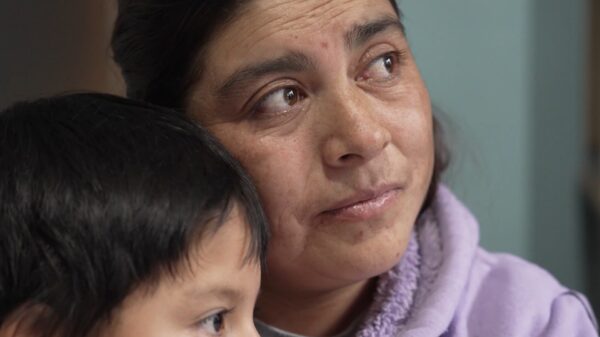UPDATE: Noura Sakkijha and Majed Masad, the married cofounders of the thriving jewelry brand Mejuri, have unveiled how they tackle disagreements using Jeff Bezos’ renowned management principle, “disagree and commit.” This strategy, rooted in trust and clear communication, is pivotal in their partnership as they steer the company forward.
Just announced, Sakkijha and Masad shared insights from their entrepreneurial journey during an interview with Business Insider. They established Mejuri in 2013 and have since transformed it into a prominent player in the jewelry market. Their unique dynamic as both partners and spouses has fostered a strong foundation, enabling them to navigate challenges and optimize decision-making processes.
Both cofounders emphasize the importance of open dialogue and delegating responsibilities based on their strengths. Sakkijha, serving as CEO, excels in communication and emotional intelligence, while Masad, the cofounder and president, focuses on marketing and strategy. This “divide and conquer” approach has been crucial in balancing their professional and personal lives, especially while parenting their twins.
“We balance each other out, even in the boardroom,” Masad stated. “Sometimes I’ll be going sideways, and Noura’s course correcting, or vice versa.” This teamwork is essential, particularly when they encounter disagreements.
When differences arise, Masad applies Bezos’ principle of “disagree and commit.” He explained that even in the absence of consensus, it is vital to trust the person closest to the issue to make the final decision. “If you have conviction on a particular direction even though there’s no consensus, it’s helpful to say, ‘Look, I know we disagree on this but will you gamble with me on it?'” he quoted Bezos from a 2016 shareholder letter.
The couple acknowledges that not all decisions are straightforward. Masad noted that their approach varies between “two-way doors,” which can be reversed, and more permanent “one-way door” choices, which require careful consideration and discussion. “I’m not gonna say it’s always pretty and it’s always easy,” Masad admitted, reflecting on the complexities they face.
Their early days of building Mejuri were particularly challenging as they were newly married and still adjusting to each other’s work styles. The arrival of their twins and the onset of the pandemic added further complications. “Noura’s problems are my problems; my problems are Noura’s problems,” Masad shared, highlighting the intertwining of their personal and professional lives.
To maintain balance, the couple has implemented strategies to keep work discussions away from family time. They schedule one-on-one meetings to address business matters and resolve disagreements, ensuring that their relationship remains a priority.
As Mejuri continues to grow, Sakkijha and Masad’s innovative management style and commitment to each other serve as a powerful testament to the potential of entrepreneurial partnerships. Their story underscores the importance of trust, communication, and shared goals in navigating both business and personal challenges.
Stay tuned for more updates as Mejuri’s journey unfolds, and discover how this couple’s unique strategy may influence future entrepreneurial partnerships.







































































